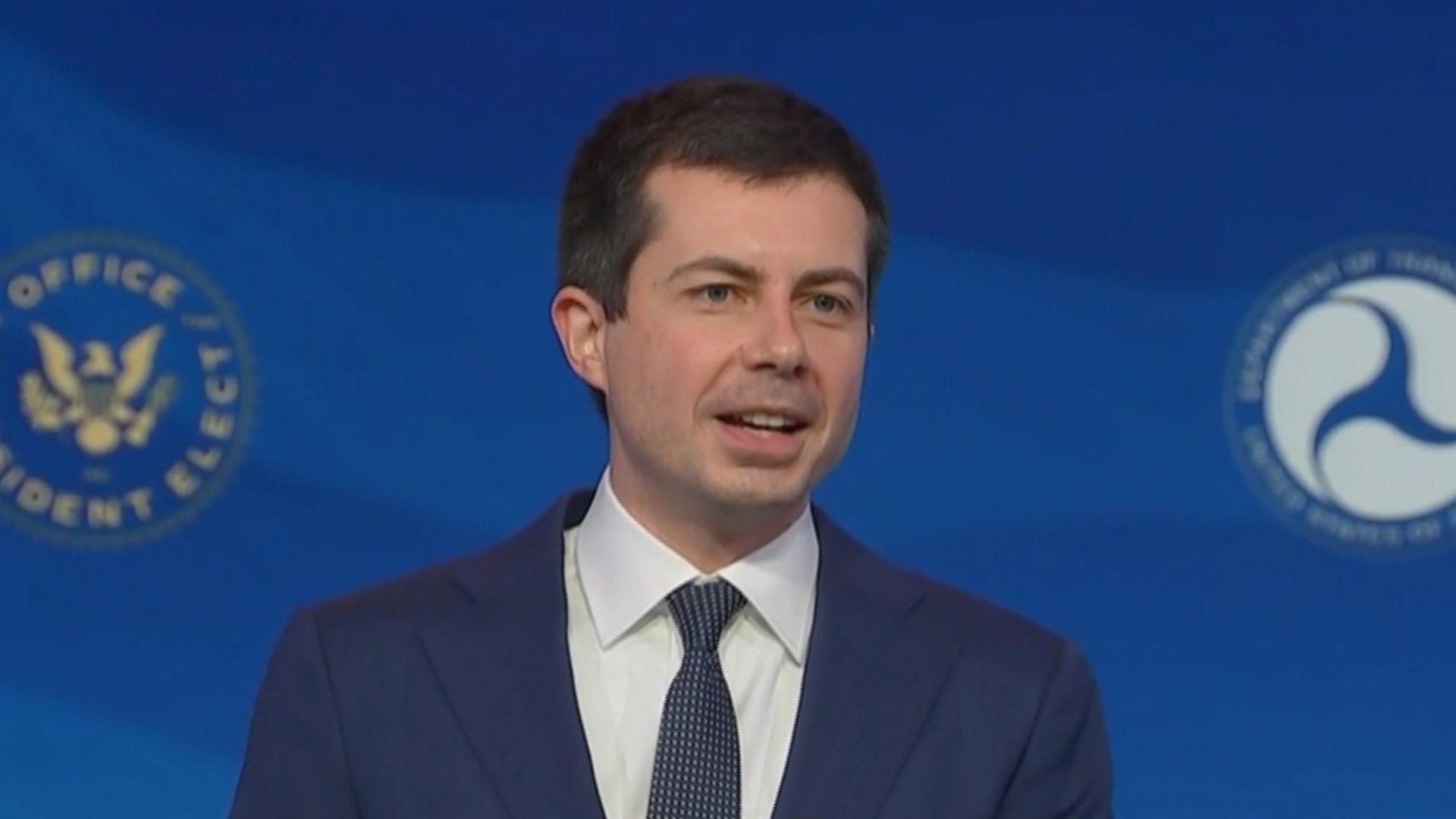Pete Buttigieg, former U.S. transportation secretary and 2020 Democratic presidential candidate, has made the strategic decision not to pursue Michigan’s open U.S. Senate seat in 2026, a move that may hint at his ambitions for a larger political future, including a possible run for the White House in 2028.
Buttigieg, the first openly gay person confirmed to a cabinet position by the U.S. Senate, lives in Traverse City, Michigan, with his husband, Chasten, and their two children. Although he’s choosing not to enter the Senate race, Buttigieg has not distanced himself from politics, and his decision could be laying the groundwork for a more ambitious campaign in the coming years.
According to The New York Times, three sources close to Buttigieg’s decision revealed that the former mayor of South Bend, Indiana, had been considered a leading contender for the Senate seat being vacated by retiring Democrat Gary Peters. With strong name recognition and a robust fundraising network, Buttigieg was viewed as a formidable candidate. However, his relocation to Michigan in 2022 opened the door for “carpetbagger” attacks, and jumping into the Senate race now could hinder his chances for a presidential bid in 2028.
Politico reported that Buttigieg met with Senate Minority Leader Chuck Schumer to discuss the possibility of a Senate run but ultimately opted out. Political allies suggest that the decision was strategic, as Buttigieg looks to keep his options open for a presidential bid in four years.
“The hardest decision in politics is to pass on a race you have a very good chance to win,” Democratic strategist and Buttigieg mentor David Axelrod told Politico. “Pete was an A-list recruit and would have been a formidable candidate. But had he won in ’26, it would almost certainly have taken him out of the conversation for ’28.”
Buttigieg’s choice reshapes the Senate race in Michigan, a crucial battleground state where Democrats are determined to hold their slim majority in the Senate. State Senator Mallory McMorrow and Representative Haley Stevens are expected to vie for the seat, while Republicans are eyeing the opportunity to flip the seat after Donald Trump won Michigan in 2016 and nearly captured it again in 2020.
The decision not to run for Senate also adds to speculation that Buttigieg may have been considering a bid for Michigan’s governorship. However, he passed on that opportunity as well, leaving the door open for other Democrats to seek the position, as Governor Gretchen Whitmer is term-limited.
Despite stepping back from the Senate race, Buttigieg remains a strong and influential voice in the Democratic Party. His criticism of former President Trump has only intensified, particularly regarding Trump’s rhetoric surrounding a deadly plane crash over the Potomac River. Trump had used the crash to push his anti-diversity, equity, and inclusion (DEI) agenda, blaming the Federal Aviation Administration’s DEI policies for the tragedy.
In response, Buttigieg condemned Trump’s remarks, calling them “despicable” and highlighting the improvement in air safety under his watch. “As families grieve, Trump should be leading, not lying,” Buttigieg tweeted, pointing out that safety measures had improved during his tenure as transportation secretary.
Buttigieg’s sharp messaging was also on display during a recent appearance on The Late Show with Stephen Colbert. There, he humorously rebutted Trump’s bizarre claim that Democrats were “turning mice transgender” — a reference to a baseless right-wing conspiracy theory. Buttigieg also called out Trump’s foreign policy contradictions, criticizing his attacks on Canada while aligning with Russian President Vladimir Putin.
Buttigieg continues to use his platform to speak out on issues important to Americans. He recently warned that Trump’s new tariffs on Canada, Mexico, and China would ultimately hurt working-class Americans, as increased prices from the tariffs would make everyday goods more expensive.
While Buttigieg’s immediate political future remains unclear, signs point to a 2028 presidential bid. According to Politico, he is polling just behind Vice President Kamala Harris among potential Democratic contenders for 2028. Buttigieg’s active fundraising network, which helped raise over $15 million for the Harris-Walz campaign in 2022, suggests he is laying the groundwork for a larger campaign.
For now, Buttigieg is keeping his next steps under wraps. However, his decision to forgo a Senate run and the increasing buzz around a possible presidential bid suggests that Pete Buttigieg is positioning himself for an even bigger political stage in the near future.







